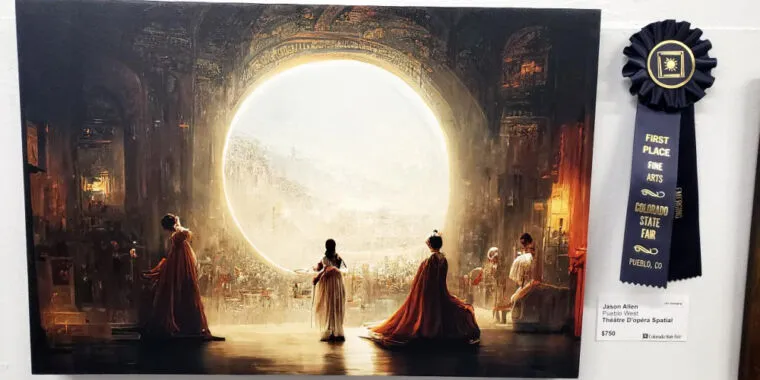Actually… If an animal you own/trained makes art… you did get to have the copyright to the art, until recently with these same legal developments. Now it’s less clear.
If you're referring to Wikimedia's infamous Monkey Selfie Dispute, which is the case I'm most aware of, then the reason its less clear is because its hard to determine the sufficient amount of human creativity required to render a human copyright over an animals work.
I'd argue that last bit doesn't apply to the AI, because while you do provide inspiration in terms of your prompting, tweaking, etc., it is ultimately always the AI that interprets those prompts and creates the artwork. Supervising an AI is not the same thing as setting up and taking a photograph, or drawing a painting.
We copyright art made by random chance emergent effects (Polluck et al.), process based art (Morris Louis et al.), performance art (so many examples… Adrian Piper comes to mind), ephemeral art, math art, and photography, as the poster says. None of those artists are fully in control of every aspect of the final project- the art makes itself, in part, in each example.
If you're going to cite artists, it would be a good idea to at least link their work for context for those who aren't in the know... As I don't know these artists, I can't make an informed response, so I'll move on.
If a human uses a math equation for the geometric output of a printer, and they tweak the variables to get the best looking output, we consider that art by law. Ai is exactly the same.
There's a big difference between a human designing a math formula to output a desired geometry, and a human instructing an AI to do the same.
By having the AI do the artistic work, it'll always be the one making the artistic choices based on your instruction, and therefore the art is not yours to own.



![[HN] US rejects AI copyright for famous state fair-winning Midjourney art](https://lemmy.uhhoh.com/pictrs/image/0651a94f-76b4-44a6-bc82-650d5062a7ef.jpeg?format=webp&thumbnail=196)